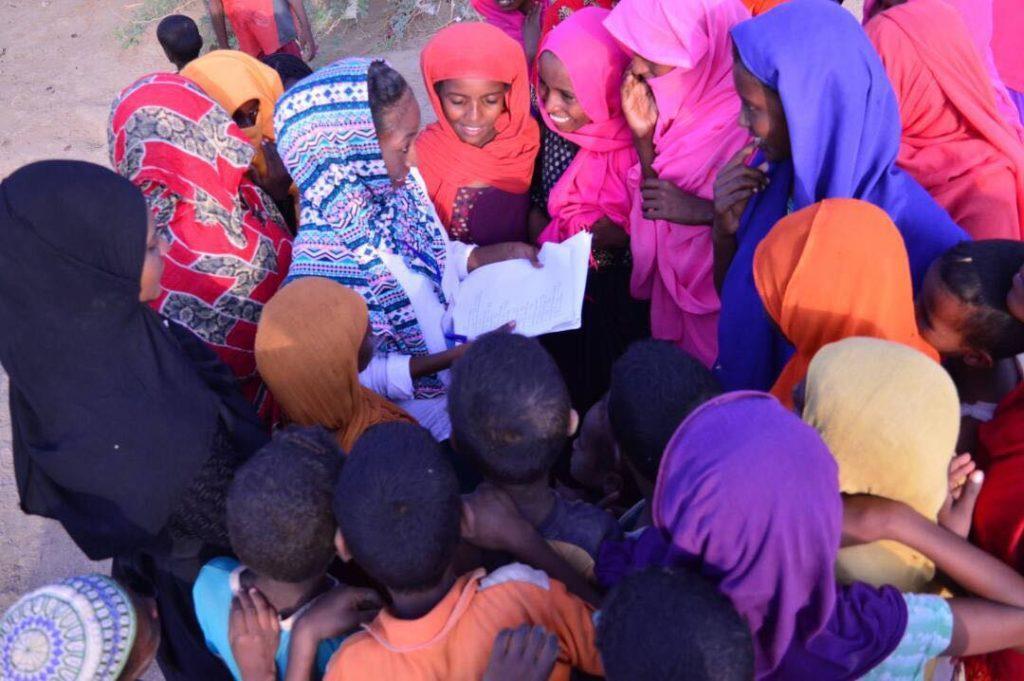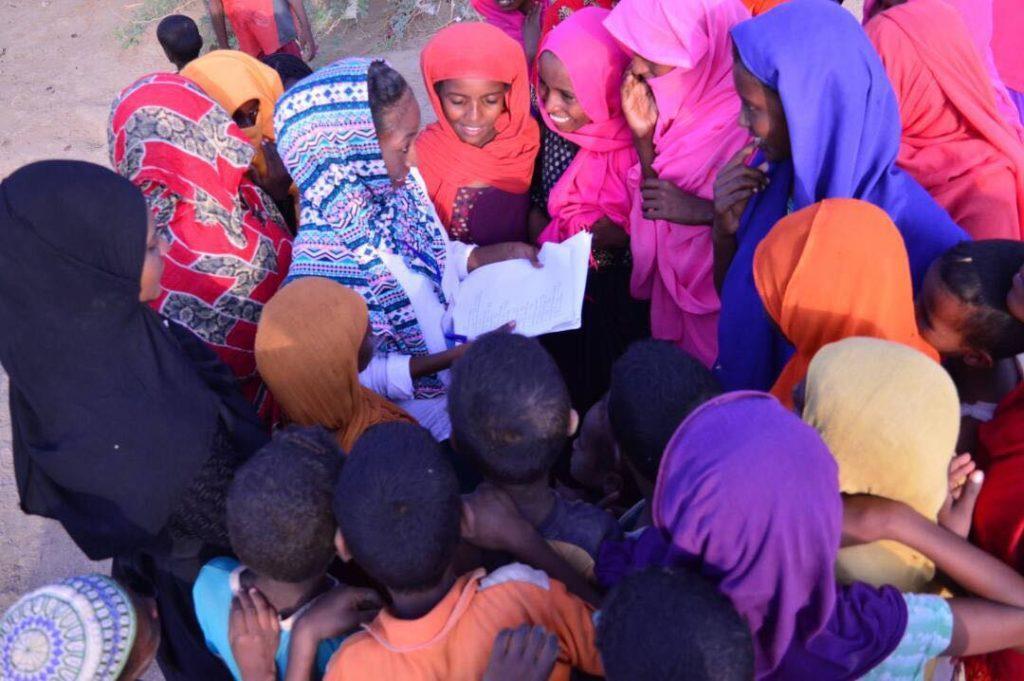
COVID-19 has impacted the lives and livelihoods of communities across Sudan, like in much of the rest of the world. However, the impact in Sudan has been aggravated by the already crumbling healthcare infrastructure and deteriorating economy, on top of the uncertain political transition the country is going through. A recent analysis suggests that the rates of COVID-19 infections and deaths have been vastly underreported, giving people a false sense of security due to the belief that the hot weather conditions in the country and some form of “natural immunity” are protective against the virus, as well as widespread disbelief in its existence in the first place.
Duriya and Ahmed are community COVID-19 first responders where there are no responders, facing off the pandemic with a dwindling supply of ammunition. Their job – and that of the community Youth-Peer Electronic Education Resources (Y-PEER) volunteers across the country – is a challenge difficult to face, let alone accomplish. Still they respond, against many odds, spurred on by the sense of responsibility to their families and communities, and the strong conviction that their actions could yet make a difference in an otherwise desperate situation.
The Y-PEERs Sudan is a branch of the global Y-PEERs network that works within communities to change behaviours for the better, using different educational methods including direct dialogue with youth peers from both genders, and raising awareness. The network was established by UNFPA (in partnership with UNICEF) in 1999, and originally focused on gender-based violence, reproductive health, education, and supporting peace movements in Sudan. With COVID-19 increasingly wreaking havoc in their communities, however, the network caught that ball mid-air and hit the ground running.
Duriya and Ahmed didn’t wait for the official government response which they knew may never come. Instead, they started working with their peers to crowdsource ideas for locally appropriate prevention methods, raised awareness about what could work to mitigate the impact of the virus on health and wealth of community members, and led initiatives to support the most vulnerable in coping with the need to shield themselves. They have been doing all this through community-led, community-conducted research that generates much needed contextualized, real-time and relevant evidence.
Action based on research is new to the network, and this is where the partnership with a group of humanitarian and public health experts based in the London School of Hygiene and Tropical Medicine and the University of Khartoum has come in, supported by UK Aid. The partnership was named the Sudan COVID-19 Research Group, and together they have been navigating the impact of COVID-19 in Sudan from the community level upwards through mitigation practices tailored to the local context.
Of course, the process has not been easy. Research and training face many challenges in the country, starting with a very basic one: communication. Internet and phone coverage issues form some of the biggest obstacles for researchers especially at the data collection phase, causing members to miss out on meetings and forcing them to shift strategies several times (including recording meetings and uploading them to a private channel and sharing links with the team).
Cooperation at the community level has also been a challenge with wide-spread skepticism of the existence of COVID-19, stigma surrounding the disease and all those who contract it, and hesitancy of research participants to engage in unfamiliar remote data collection methods. But as the Y-PEERs are trained to mobilize the communities they work and live in, they have been able to overcome most of these difficulties through their extensive networks. Targeting community influencers and gate keepers, they managed to unlock doors that would have otherwise remained firmly shut.
Challenges also exist at the policy level. The insanely high turnover rate at the Federal Ministry of Health makes getting to (and holding onto) policy makers a near impossible feat. This has been a longstanding challenge in Sudan which jeopardizes sustainable health policy development and the maintenance of any kind of institutional memory. Still, the recent economic and political deterioration in the country, in addition to the constant change of leadership following ever-shifting political alliances, further exacerbated the massive brain drain and turnover. Nevertheless, Y-PEERs Sudan has also been able to overcome this challenge by leveraging their networks within the ministry starting at the most junior level, in order to get their voices heard higher up.
The high level of community engagement in all aspects of the study has been crucial to the project’s success. The study teams and data collectors include members who live and work in each of the study sites, and all members are heavily involved in the data management and analysis. This contextuality provides valuable depth and strength to the qualitative component of the studies in particular, providing a wealth of data that extends well beyond COVID-19.
These results have been translated into targeted advocacy campaigns at community and national levels, and policy briefs delivered to and discussed with policymakers at the highest level – including the High Commission for Emergencies which is tasked with leading the country through the COVID-19 crisis. These briefs have provided evidence-based advice on easing lockdown regulations and navigating the second COVID-19 wave, and most importantly have provided evidence supporting shielding high-risk populations as a locally-appropriate mitigation method. Based on the teams’ recommendations, the shielding concept was introduced into the national COVID-19 guidelines for the first time.
A small victory for Ahmed and Duriya, but their fight is far from over. They and their fellow Y-PEERs continue to mobilize their communities, supporting families affected by the pandemic and resulting economic impact, shooting down rumours and fake news around the virus, and expanding their research agenda across the country so that no one is left behind – and all this despite the difficulties they themselves face in their daily lives. Moreover, the partnership is well-chosen, with the youth being both players and beneficiaries from what is sown today and harvested tomorrow.
Acknowledgements:
Maysoon Dahab, London School of Hygiene and Tropical Medicine
Duriya Awad, Y-PEERs Sudan
